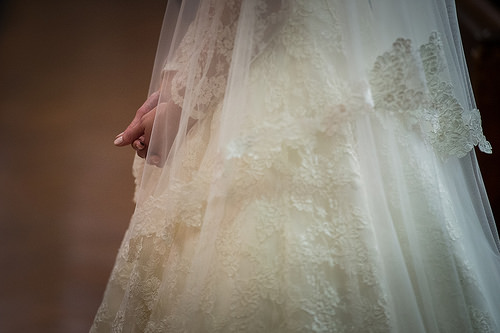Preparing Your Wedding Liturgy
Choosing Music: Hymns

Preparing your Wedding Liturgy
When people think of singing in church it is often hymns they think of. And so, when beginning to think of music for the wedding liturgy it will be the hymns they first think of. Hymns are part of our culture whether as part of a background Songs of Praise, sung at football matches or half-remembered from school days. You probably know more hymns therefore than you can put a name to. Part of the role of the organist will be suggest a range of hymns that might be right for your wedding.
The choice of hymns will often be shaped the text of hymns. The readings you choose can help to identify suitable hymns. A starting point for many will be hymns about or which mention love but many aspects of love can be explored: God’s love for us, our love of God, love of friend and neighbour. Other themes might include the more general praise and thanksgiving as well as the more specific praise of God in creation. For some couples the ideas of ministry and discipleship will be resonant, for others trust, guidance and hope in the future.
Hymns that are well known sung by a congregation that is willing to raise the roof can be an amazing sound. It can be the sound of the love and support that friends and family offer you. People will often sing when it makes sense for them do so and they know their voice will make a difference.
How many hymns? I
For many people the model for singing hymns will be Sunday Mass when we are often have hymns at the beginnning and end and then a couple of points during the service. In Catholic practice we usually sing hymns to accompany something else happening — at the beginning of Mass the first hymn accompanies the Entrance Procession. It is not common to sing a hymn for its own sake while nothing else in the liturgy is happening. In a wedding because instrumental or organ music will often accompany the entry and final processions because people feel that they need a certain of hymns there is as well as an entrance procession an opening hymn as well. At its best this can be a good thing as it fulfils one of the roles of music in the liturgy — making many voices into one voice of praise — but if only a few people sing a six verse hymn and the loudest voice is the priest, and he isn’t that great, it can be counter effective. Two guidelines which are worth considering:
- No hymns at all — you can have a perfectly legitimate Catholic wedding without any hymns being sung at all.
- Not every verse needs to be sung — just because a hymn has 6 verses in the hymnbook does not mean that every verse needs to be sung. Particularly when the hymn stands alone a long hymn can be a test of stamina. 3–4 verse can be enough — do check that the narrative of the hymn makes sense with the omitted verses.
The place for hymns
Entrance or Opening Hymn
It would be possible to have a hymn to accompany the entrance processsion but this is not common practice.
As the Opening hymn is an addition to the liturgy (it has been replaced by the Organ music) it can either come directly at the end of the Entrance Procession or following the Greeting and the Sign of the Cross. Most Priests will have their preferred way of doing this.
As well the general themes of marriage given above the hymn may also reflect the liturgical action — i.e. be about God’s calling us together to celebrate this liturgy.
End of Marriage Rite
After the Blessing and Giving of Rings there is space for an hymn, if desired, to bring this section of the liturgy to a conclusion. A hymn of thanksgiving would be appropriate.
Mass: Preparation of Gifts.
When there is a celebration of Mass there may be a hymn at the Preparation of Gifts or Offertory. As well as the general marriage themes it possible also to sing a hymn about the gifts of bread and wine.
Mass: Communion
When Holy Communion is distributed there are two moments for hymns, songs or chants: to accompany the procession to Communion and as a song of thanksgiving after everyone has received.
Final hymn or song
At Mass the Missal makes no mention of a final hymn. It is expected that we respond to invitation to ‘go in peace’ by doing so but we have become familiar with a final song which effectively elaborates our ’Thanks be to God’. This tension between going and staying can also be found in the wedding liturgy where a final hymn is often not the end as it followed by the Signing of Registers and then the final procession with instrumental music. When there is Wedding Mass this can be increased where there is a substantial Hymn after Communion as well.
How many hymns? II
If you love a wide range of hymns and everyone coming to the wedding will raise their voices have a hymn in every possible slot. If the hymns you sang at primary school are now a distant memory and you are not sure that any singing will start before well into the wedding reception — less can be more. As noted above you can have none but beyond you may wish to consider for Wedding withing Mass singing hymns at either the conclusion of the Marriage Rite or at the Preparation of Gifts and then one after Communion.
